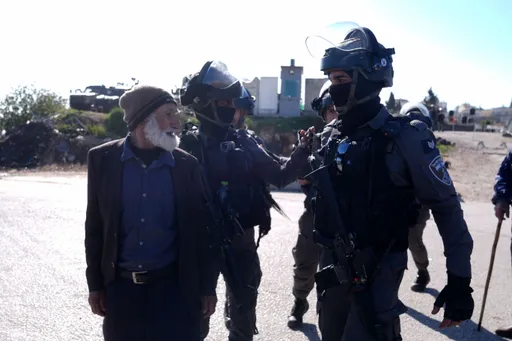The Belgian Intelligence Service (VSSE) reported that in Western Europe the extreme right is changing, with some right-wing leaders calling for their militants to receive training in weapons handling and acquire guns through both legal and illegal means.
The information is based on the agency's research during 2018.
VSSE observed that, just as in other Western European countries, extreme right-wing ideology was fully active in Belgium. According to the report: “The environment has changed significantly. Old forms of right-wing extremism, such as radical Nazism or skinhead culture, are indeed reappearing.”
Ten years ago, extreme right-wing skinhead groups, sometimes numbering up to several hundred people, gathered in parish halls in the countryside to attend concerts by groups glorifying Nazism and its excesses. The remnants of this subculture now persist behind the scenes.
“Concerts and other events are subject to special discretion and are organised on a small scale,” according to the report. “These movements do not hide their admiration for Nazism, promote a culture of violence and occasionally call for hatred and violence on different platforms.”
European refugee crisis was a turning point
The Belgian Secret Service says that since the European refugee crisis of 2015-2016, anti-Muslim and anti-refugee activities have become key issues in extreme right-wing circles. However, the distinction between these two forms of activism has blurred considerably since the flow of refugees reached its highest level.
However, the report points out that this has not always been the case in the past: 10 years ago, extreme right-wing groups played more on nationalist feelings than on xenophobic feelings from their base.
Thus, the VSSE not only found that new movements emerged from different regions, but also that older extreme right-wing movements now focused on these ‘new’ themes. One of these older groups is the Finnish right-wing movement Soldiers of Odion, which became known through street patrols after 30,000 refugees applied for asylum in the nordic country in 2015.
They are other right-wing groups, which as mentioned in the report, “attract more wealthy students than skinheads with tattooed arms”. Through resounding media actions, these groups, such as Génération Identitaire in France or Identitäre Bewegung Deutschland in Germany, know how to draw the attention of the press and the public to their themes.
Rise of armement among right-wing groups
These groups go even further and defend a conservative worldview and the ‘Christian’ character of Europe. “In Belgium, Schild en Vrienden is one of the most successful expressions of the identity movement. However, the issue is a delicate one,” says the report. Indeed, the VSSE puts on record that the Belgian movement attracts individuals with very diverse profiles and beliefs: from right-wing conservatism to non-violent democratic ideology, as well as a range of extreme right-wing, racist and denialist views.
In addition, a trend towards armament seems to be emerging within the far-right. Leaders of extreme right-wing groups encourage their activists to take lessons in shooting and to obtain weapons, legally or otherwise. The report describes their worldview as: “A societal confrontation considered inevitable between Islam and the rest of Christian Europe for which they believe we must ‘prepare’.”
Finally, the VSSE notes the fact that the internet and social media have contributed to an acceleration in the dissemination of information and have become valuable tools for propaganda and recruitment in the community.
According to the report, the real impact of these networks should not be underestimated. A racist, anti-Muslim or xenophobic message from a far-right page on Facebook that gets a large number of likes is a sign of accelerating dangers in the future. It could possibly result in mobilisation among far-right group networks.























